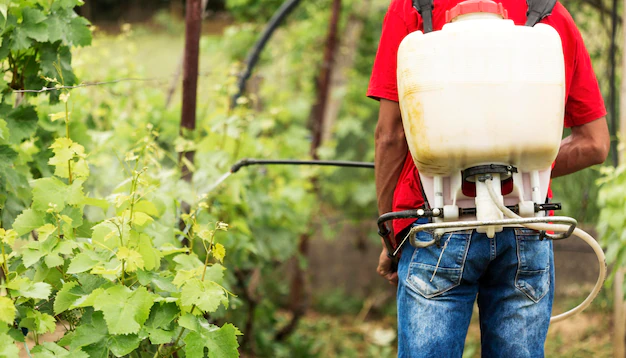Integrated Pest Management (IPM) is an approach to pest control in agriculture that aims to minimize the use of pesticides and instead focuses on sustainable and environmentally friendly strategies. Here are some of the key benefits of using IPM tools in agriculture:
- Reduced pesticide use: IPM emphasizes the use of non-chemical and low-chemical methods to control pests. By using techniques such as crop rotation, biological control, and cultural practices, farmers can significantly reduce their reliance on synthetic pesticides. This reduces the negative impacts on the environment, human health, and beneficial organisms.
- Lower production costs: Traditional pest control methods often involve frequent and indiscriminate pesticide applications, which can be expensive. IPM, on the other hand, encourages targeted interventions based on pest monitoring and economic thresholds. By using IPM tools, farmers can optimize their pest management strategies, leading to cost savings in terms of pesticide purchases and application costs.
- Enhanced crop quality and yield: IPM focuses on maintaining pest populations below economically damaging levels rather than eliminating them entirely. This approach helps protect crops from significant damage, leading to higher-quality produce and improved yields. Additionally, by reducing pesticide use, IPM can minimize the risk of pesticide residues on crops, ensuring food safety and quality.
- Preservation of beneficial organisms: IPM emphasizes the conservation and promotion of beneficial organisms such as pollinators, natural predators, and parasitoids. By reducing pesticide use, farmers provide a safer environment for these beneficial organisms to thrive. This, in turn, helps maintain ecological balance, enhances biodiversity, and promotes overall ecosystem health.
- Resistance management: Pests can develop resistance to pesticides over time, rendering them ineffective. IPM employs a combination of tactics, including rotating different pest control methods, to mitigate the development of resistance in pests. By diversifying pest control strategies, IPM helps preserve the effectiveness of pesticides for future use when needed.
- Long-term sustainability: IPM promotes a holistic and long-term approach to pest management. By integrating various pest control methods, farmers can develop resilient and sustainable agricultural systems. This reduces the risk of pest outbreaks, improves soil health, conserves water resources, and minimizes the impact on non-target organisms, contributing to the long-term sustainability of agriculture.
IPM tools provide a balanced and environmentally sound approach to pest management in agriculture, offering numerous benefits to farmers, consumers, and the ecosystem as a whole.
Join 'Farmers Mag' WhatsApp Channel
Get the latest Farming news and tips delivered straight to your WhatsApp
CLICK HERE TO JOIN






